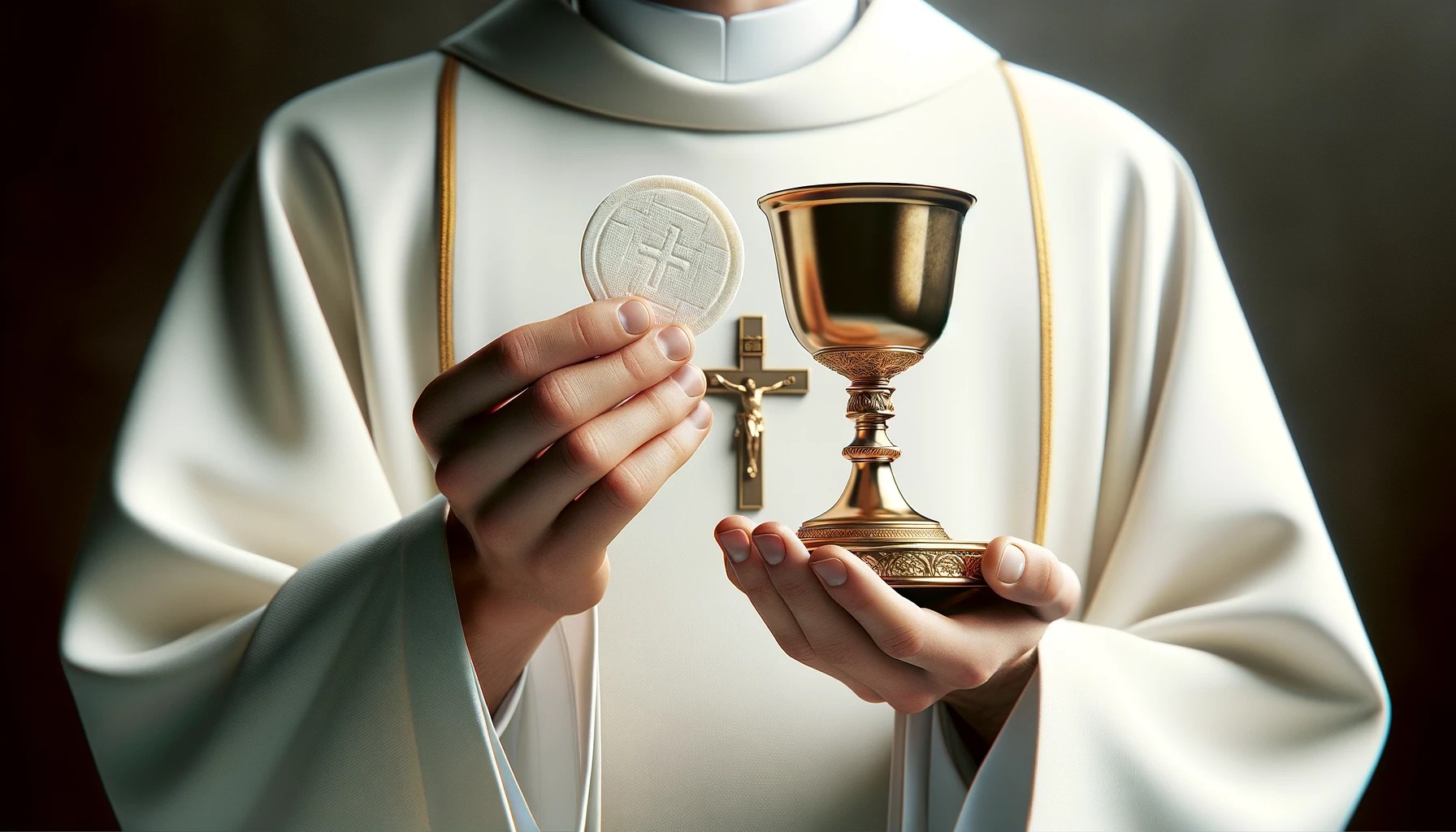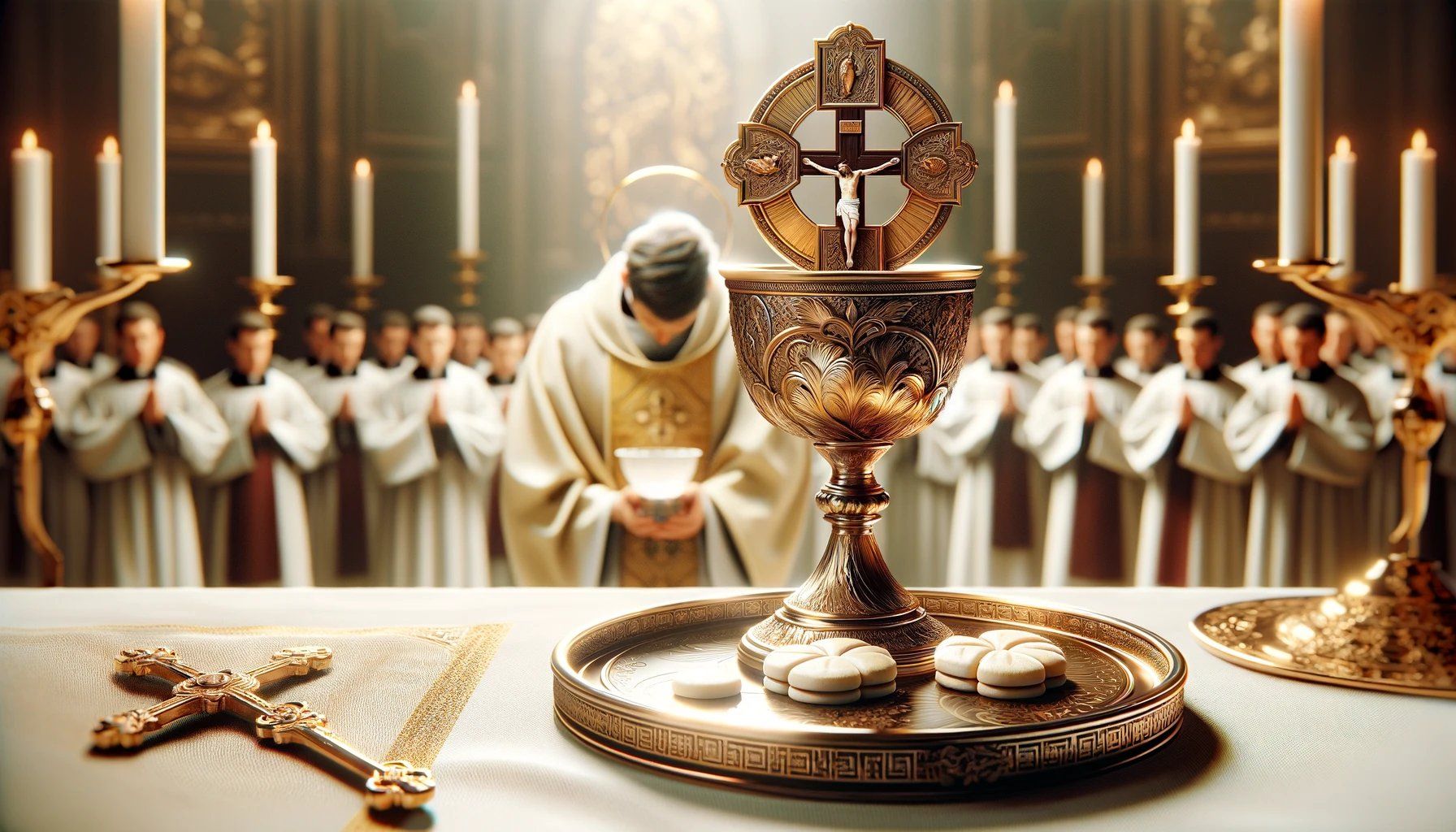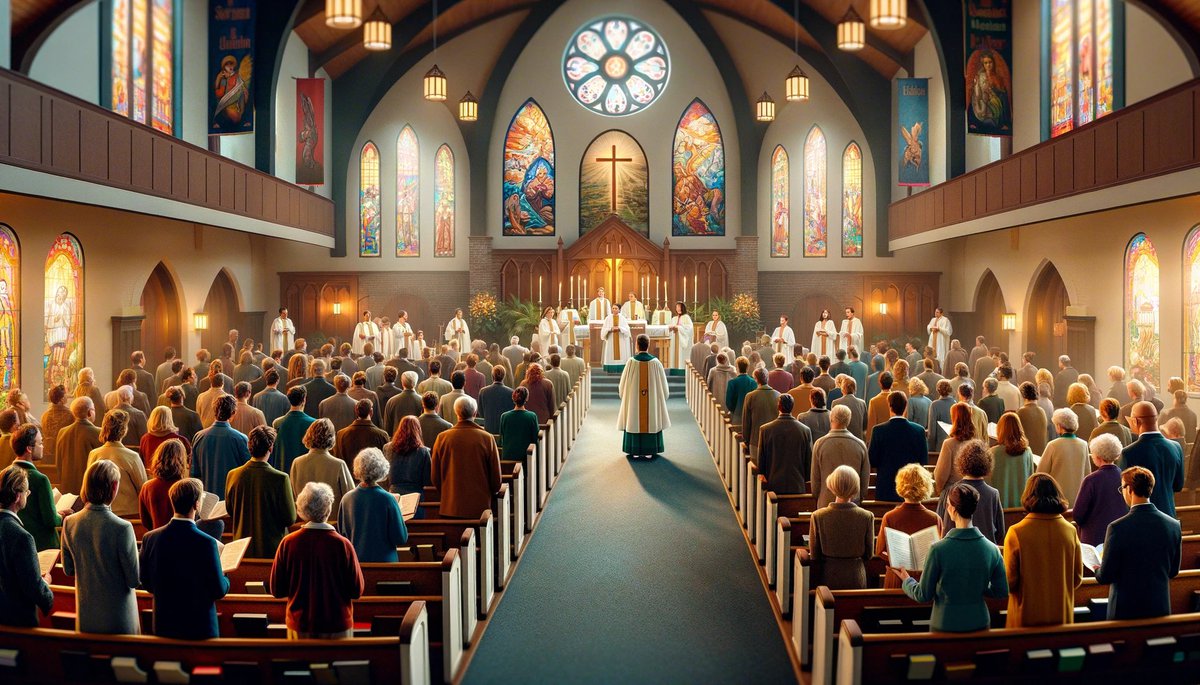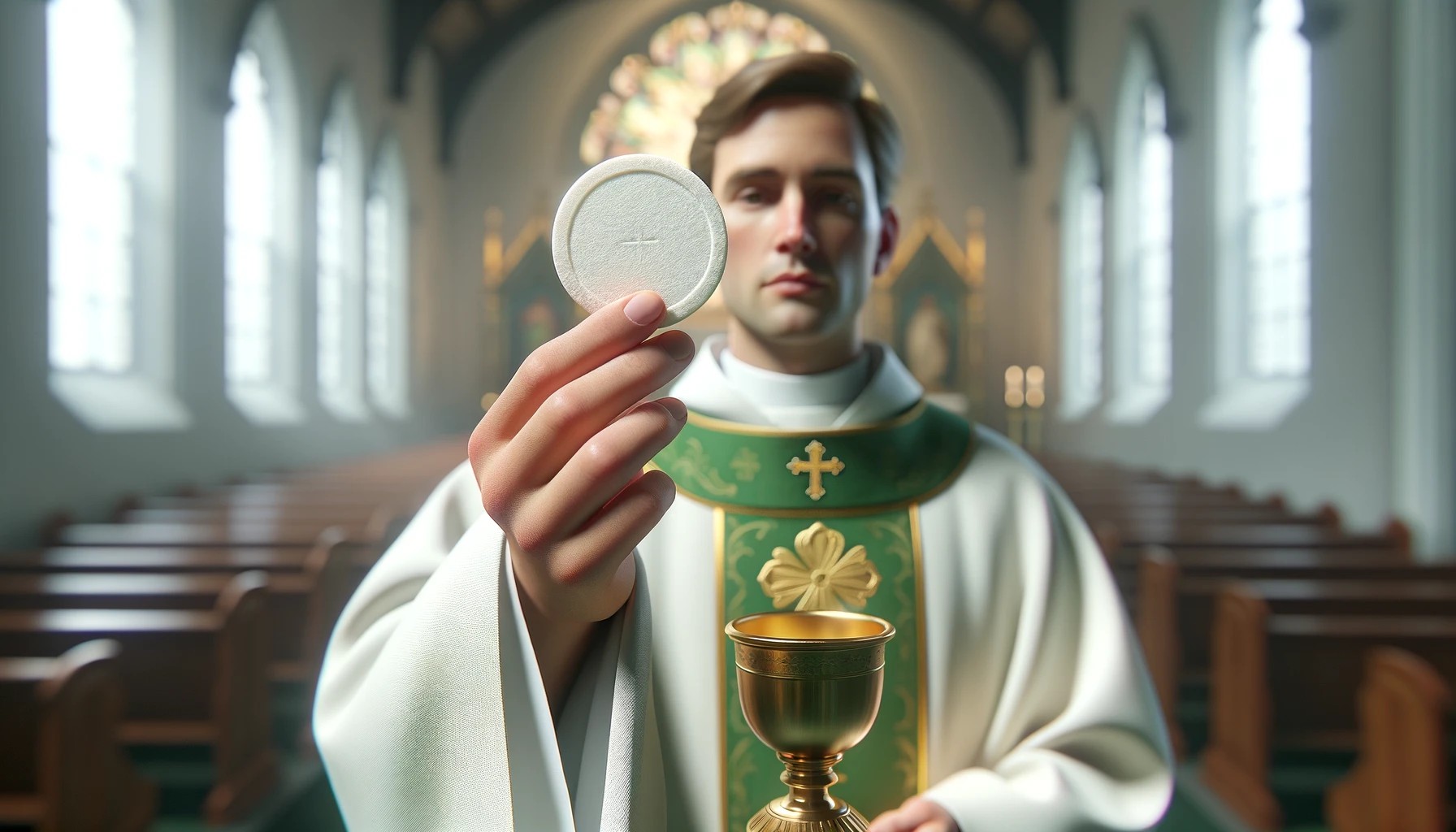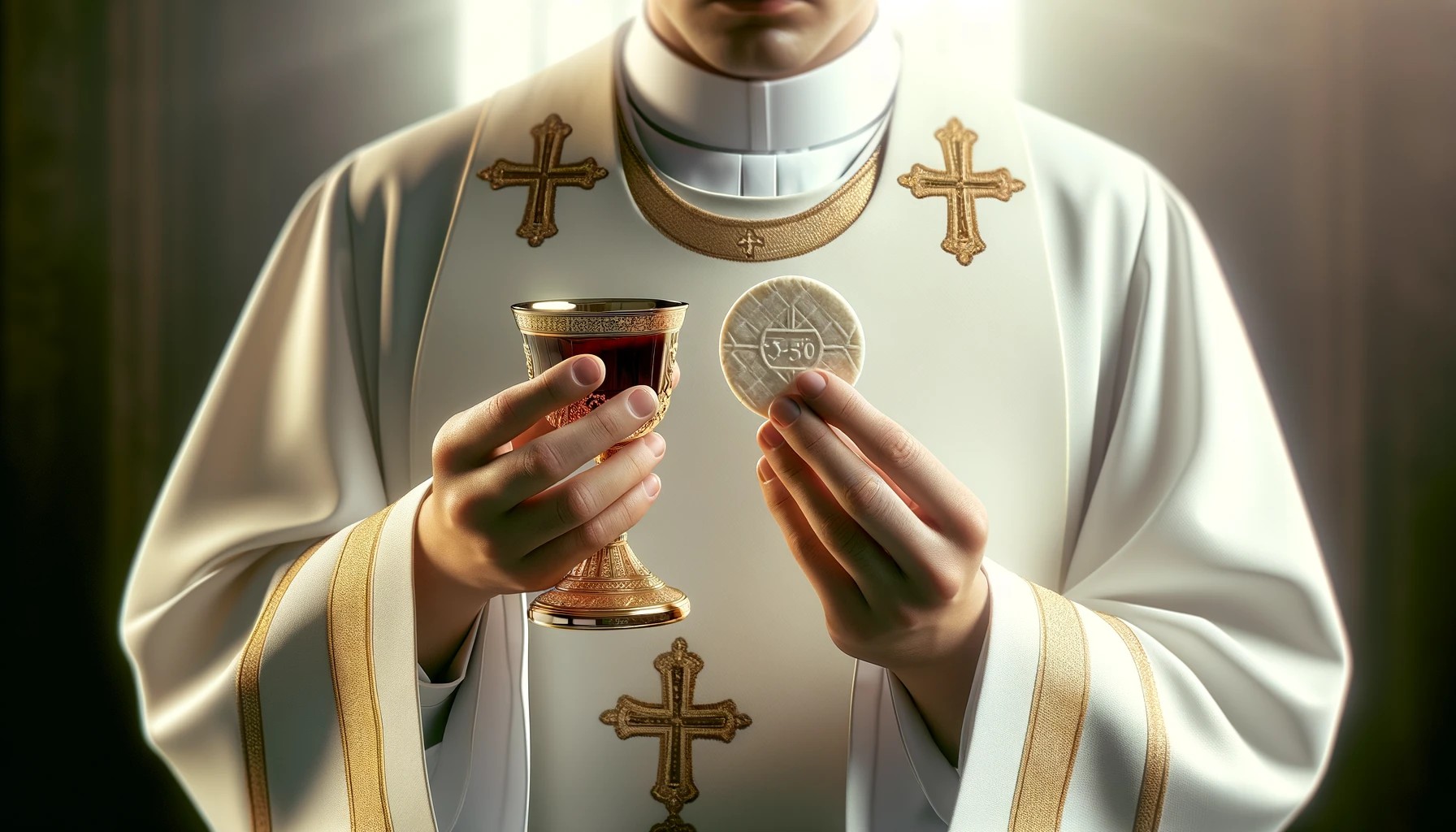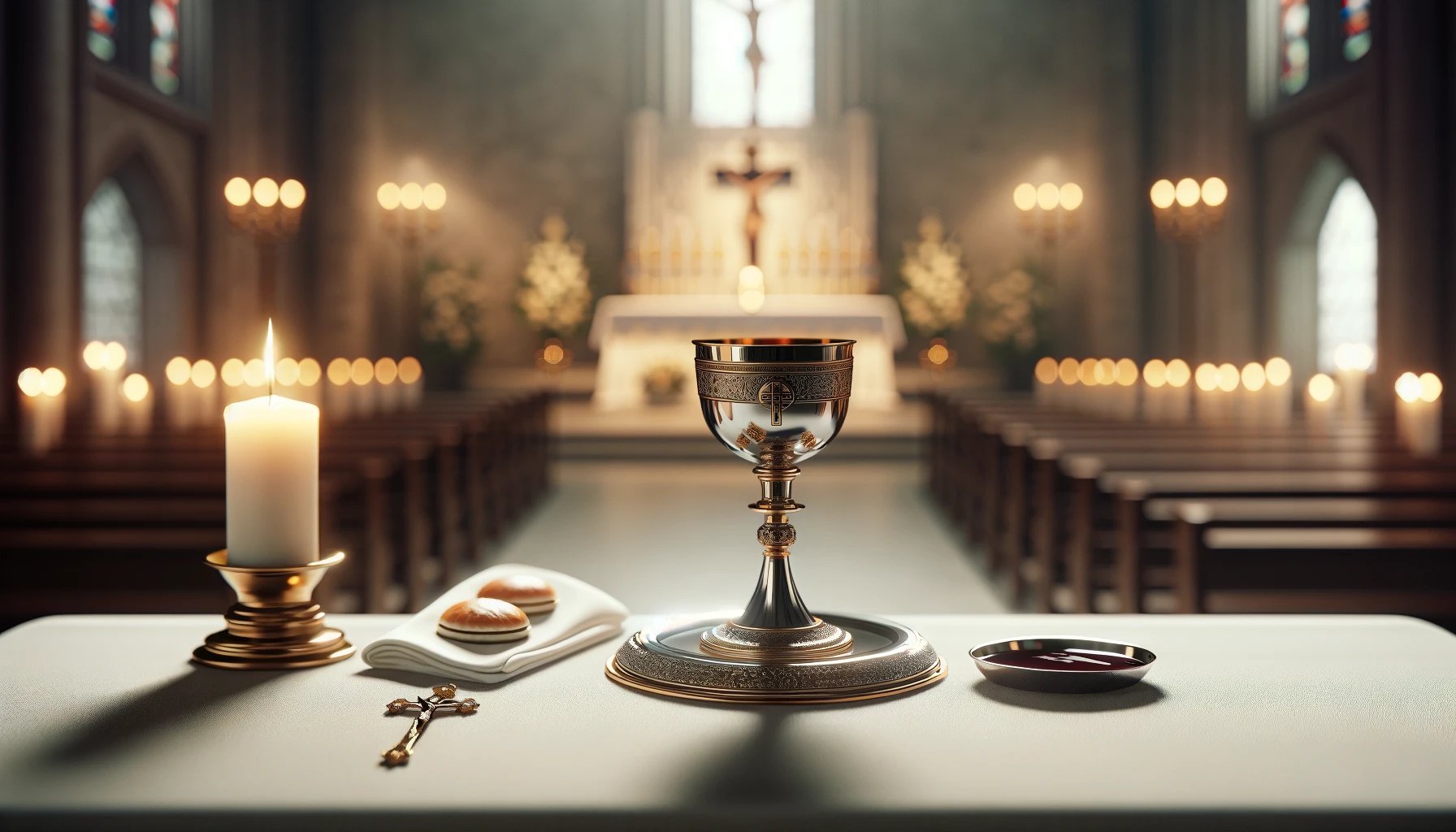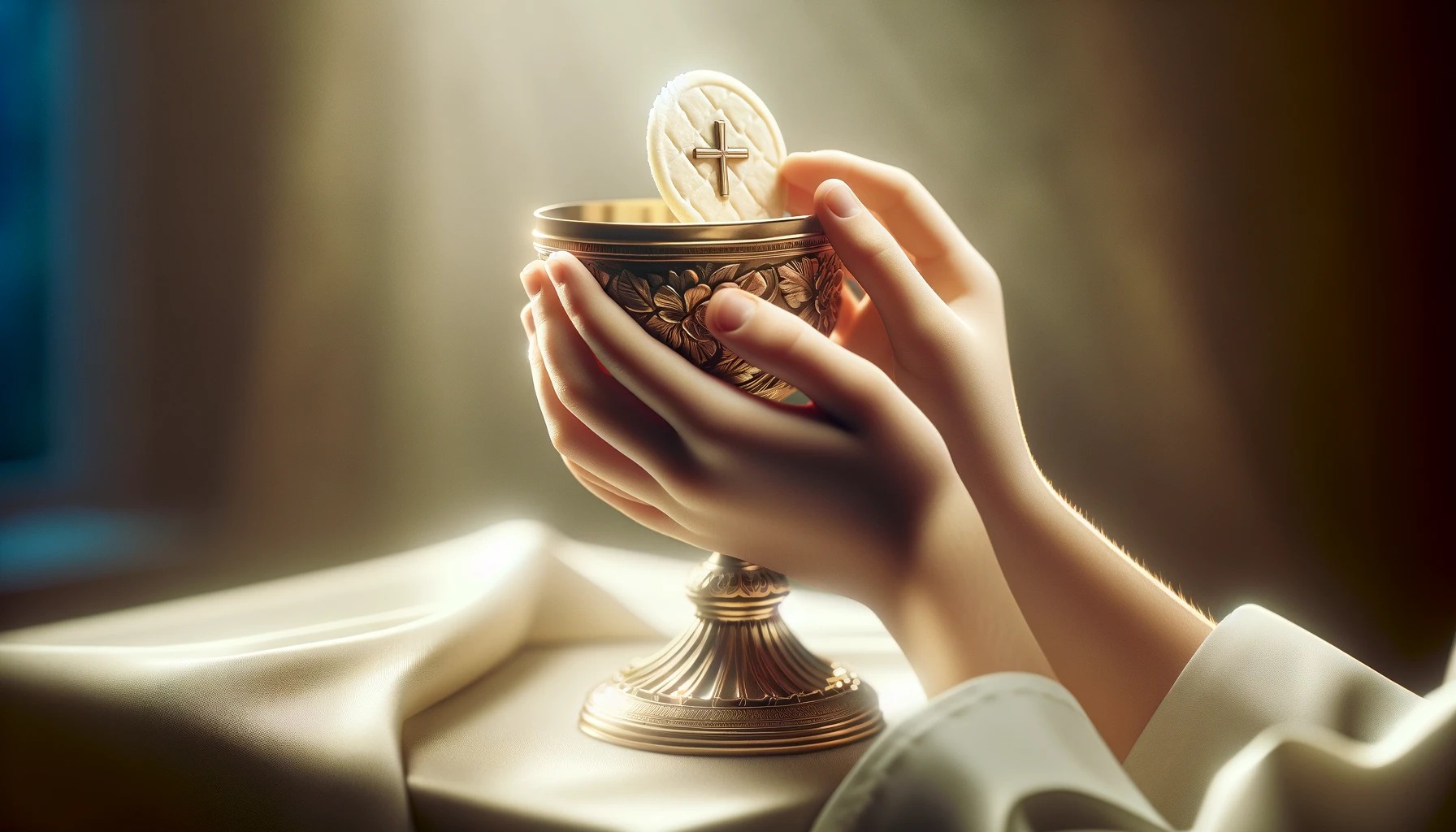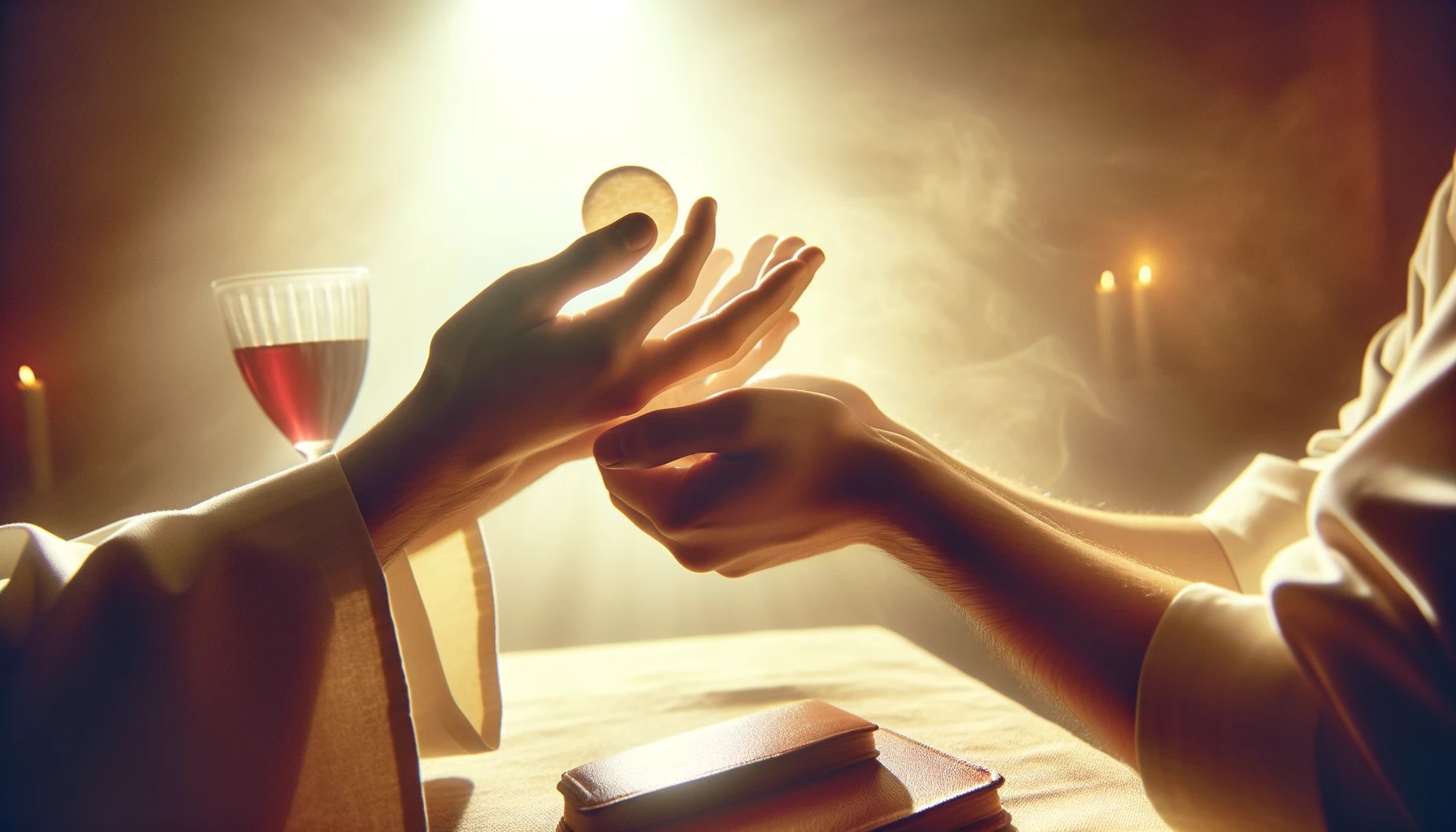Home>Theology and Spirituality>What Happens If A Non-Catholic Takes Communion


Theology and Spirituality
What Happens If A Non-Catholic Takes Communion
Published: February 24, 2024
Ericka Andersen, an editor at Christian.net, expertly merges digital strategy with content creation, focusing on faith and societal issues. Her communication skills enhance the platform's engaging narratives, fostering meaningful dialogue on belief's impact on society.
Discover the implications of a non-Catholic taking communion and the theological and spiritual significance behind this practice. Explore the complexities of interfaith communion in theology and spirituality.
(Many of the links in this article redirect to a specific reviewed product. Your purchase of these products through affiliate links helps to generate commission for Christian.net, at no extra cost. Learn more)
Table of Contents
Introduction
The act of taking Communion, also known as the Eucharist, holds profound significance within the Catholic faith. It is a sacred ritual that symbolizes the body and blood of Jesus Christ and is considered a deeply spiritual and reverent practice by Catholic adherents. However, the question of whether non-Catholics should partake in Communion is a topic that sparks contemplation and discussion.
In this article, we will delve into the complexities surrounding the participation of non-Catholics in the Communion service. We will explore the theological underpinnings of the Catholic Church's stance on Communion, the potential consequences for non-Catholics who partake in this sacrament, and the importance of respecting religious beliefs and practices. Additionally, we will consider alternative ways for non-Catholics to engage meaningfully during the Communion service.
As we navigate through this multifaceted subject, it is essential to approach it with sensitivity and understanding. By gaining insight into the perspectives and teachings of the Catholic Church, we can foster a deeper appreciation for the significance of Communion and the reverence it commands within the Catholic faith. Let us embark on this enlightening exploration to gain a comprehensive understanding of what transpires when a non-Catholic considers participating in the sacred ritual of Communion.
Read more: Why Do Catholics Take Communion
Understanding the Catholic Church's stance on Communion
The Catholic Church regards the act of Communion as a deeply sacred and central aspect of the faith. At the heart of this belief is the concept of transubstantiation, which asserts that during the Eucharistic celebration, the bread and wine become the actual body and blood of Jesus Christ. This transformation is not symbolic but rather a profound spiritual reality within the Catholic tradition.
Central to the Catholic Church's stance on Communion is the understanding that partaking in this sacrament is an expression of unity with the body of Christ, both in a spiritual and communal sense. It is a solemn moment of worship and reverence, symbolizing the intimate connection between the faithful and the divine.
In the Catholic faith, the reception of Communion is reserved for baptized members of the Church who are in a state of grace, having confessed their sins through the sacrament of reconciliation. This requirement reflects the Church's emphasis on spiritual preparation and the sanctity of the Eucharist. The faithful are encouraged to approach the Communion table with a heart open to the transformative power of Christ's presence.
Furthermore, the Catholic Church upholds the belief that Communion is not merely a personal or individual act of devotion but a communal expression of faith. It signifies the unity of believers in the body of Christ and the shared participation in the life-giving sacrifice of Jesus.
The Church's stance on Communion also underscores the significance of proper discernment and understanding of the sacrament. It emphasizes the need for communicants to recognize the real presence of Christ in the Eucharist and to approach the reception of Communion with reverence, humility, and faith.
In essence, the Catholic Church's stance on Communion reflects its profound reverence for the Eucharist as a sacred and transformative encounter with the living Christ. This perspective shapes the Church's teachings and practices surrounding the administration and reception of the Eucharist, emphasizing the spiritual significance and communal unity embodied in this sacramental act.
The potential consequences for non-Catholics taking Communion
Partaking in the Catholic sacrament of Communion holds profound spiritual and theological significance within the context of the Catholic faith. For non-Catholics, the decision to participate in this sacred ritual can carry potential consequences that merit careful consideration.
From the perspective of the Catholic Church, the act of receiving Communion is a deeply solemn and reverent practice reserved for baptized members of the faith who are in a state of grace. As such, when non-Catholics partake in Communion, it can give rise to theological, spiritual, and communal implications.
The Catholic Church views the Eucharist as the real presence of Jesus Christ, and the act of receiving Communion signifies a profound unity with the body of Christ and the faith community. Therefore, for non-Catholics, partaking in Communion without adhering to the theological and sacramental beliefs of the Catholic Church can lead to potential consequences.
From a theological standpoint, the Catholic Church upholds the doctrine of transubstantiation, which asserts that the bread and wine consecrated during the Eucharistic celebration become the actual body and blood of Christ. Consequently, for non-Catholics who do not share this theological understanding, receiving Communion in a Catholic context may raise questions of theological coherence and integrity.
Spiritually, the act of receiving Communion is regarded as a deeply personal and transformative encounter with the living Christ. For non-Catholics, participating in this sacrament without a shared understanding of its spiritual significance may lead to internal conflict and a sense of spiritual dissonance.
Furthermore, the communal dimension of Communion within the Catholic faith underscores the shared participation of believers in the life-giving sacrifice of Jesus. When non-Catholics partake in Communion, it can raise concerns regarding the unity and communal identity expressed through this sacramental act.
In light of these considerations, the potential consequences for non-Catholics taking Communion encompass theological, spiritual, and communal dimensions that warrant thoughtful reflection. It is essential to recognize and respect the deeply held beliefs and practices of the Catholic faith, as well as to approach the sacrament of Communion with a spirit of reverence and understanding.
As we navigate the complexities surrounding the participation of non-Catholics in the Communion service, it becomes evident that the decision to partake in this sacred ritual carries weighty implications that extend beyond individual preference. By acknowledging the theological, spiritual, and communal significance of Communion within the Catholic tradition, we can cultivate a deeper appreciation for the sanctity and reverence that underpin this sacred sacrament.
The importance of respecting religious beliefs and practices
Respecting religious beliefs and practices is fundamental to fostering understanding, empathy, and harmony within diverse communities. In the context of the Catholic faith and the sacrament of Communion, this principle holds particular significance. The Catholic Church's teachings and traditions surrounding Communion are deeply rooted in theological, spiritual, and communal dimensions that shape the faith identity of its adherents. As such, it is essential to recognize and honor the sacredness of these beliefs and practices, even for those outside the Catholic faith tradition.
Respect for religious beliefs and practices reflects a commitment to acknowledging the sacred and deeply held convictions of individuals and communities. Within the Catholic faith, the Eucharist is revered as a central and transformative sacrament, embodying the real presence of Jesus Christ and symbolizing the unity of believers in the body of Christ. This profound understanding underscores the significance of approaching the sacrament of Communion with reverence, discernment, and faith. By respecting the theological and spiritual depth of this belief, individuals demonstrate a willingness to engage with the sacred in a manner that honors the integrity of the faith tradition.
Furthermore, respecting religious beliefs and practices cultivates an environment of mutual understanding and dialogue. It acknowledges the diversity of religious perspectives and traditions, fostering an atmosphere of inclusivity and respect. Within the context of Communion, recognizing the Catholic Church's teachings on the Eucharist as a sacred and communal act encourages meaningful interfaith engagement and promotes a spirit of unity amidst diversity. It invites individuals to embrace the richness of different religious traditions while upholding the sanctity of each faith's beliefs and practices.
Moreover, demonstrating respect for religious beliefs and practices contributes to the preservation of religious freedom and autonomy. It upholds the right of individuals and communities to practice their faith without undue infringement or disrespect. Within the Catholic tradition, the sacrament of Communion represents a deeply cherished aspect of worship and spiritual communion. By honoring the sanctity of this practice, individuals affirm the importance of religious freedom and the autonomy of faith communities to uphold their sacred traditions without compromise.
In essence, the importance of respecting religious beliefs and practices, particularly within the context of the Catholic faith and the sacrament of Communion, underscores the significance of fostering understanding, dialogue, and mutual respect. By honoring the theological, spiritual, and communal dimensions of the Catholic Church's teachings on the Eucharist, individuals contribute to a culture of inclusivity, empathy, and reverence for diverse religious traditions. This commitment to respect serves as a cornerstone for nurturing harmonious relationships and upholding the sacredness of religious beliefs and practices within a pluralistic society.
Alternatives for non-Catholics during the Communion service
For non-Catholics attending a Catholic Communion service, the question of participation in the Eucharistic ritual often arises. While the Catholic Church upholds specific guidelines regarding the reception of Communion, there are meaningful alternatives for non-Catholics to engage reverently and respectfully during this sacred moment.
-
Spiritual Communion: Non-Catholics can partake in a practice known as spiritual communion. This involves a deep, prayerful desire to unite with the spiritual significance of the Eucharist, even without physically receiving the sacrament. By engaging in spiritual communion, individuals can cultivate a profound sense of connection with the divine and the communal worship experience.
-
Reverent Observance: Non-Catholics attending a Communion service can choose to remain seated or kneel in prayer during the distribution of the Eucharist. This observance demonstrates respect for the sacred nature of the ritual while allowing individuals to participate in the communal worship through prayerful reflection.
-
Blessing: In some Catholic parishes, non-Catholics may approach the altar with their arms crossed over their chest to receive a blessing from the priest or minister instead of receiving the Eucharist. This gesture acknowledges the individual's presence and spiritual reverence while honoring the Catholic Church's teachings on Communion.
-
Participation in Liturgical Elements: Non-Catholics can actively engage in the liturgical elements of the Communion service, such as singing hymns, reciting prayers, and participating in the communal responses. By immersing themselves in the worshipful aspects of the service, individuals can contribute to the collective spiritual atmosphere.
-
Dialogue and Understanding: Engaging in respectful dialogue with Catholic clergy or members of the faith community can provide non-Catholics with a deeper understanding of the significance of Communion within the Catholic tradition. This exchange of perspectives fosters mutual respect and appreciation for the diverse expressions of faith.
-
Personal Reflection and Contemplation: Non-Catholics can use the Communion service as an opportunity for personal reflection and contemplation. This introspective approach allows individuals to connect with the spiritual essence of the Eucharistic celebration in a manner that aligns with their own faith tradition and beliefs.
By embracing these alternatives, non-Catholics can participate in the Communion service with reverence and mindfulness, honoring the sacredness of the Eucharistic ritual while respecting the theological and sacramental teachings of the Catholic Church. These alternatives offer meaningful avenues for individuals to engage in the communal worship experience while upholding the integrity of their own faith perspectives.
Conclusion
In navigating the complex terrain of non-Catholics participating in the sacrament of Communion within the Catholic faith, it becomes evident that the decision to partake in this sacred ritual carries weighty implications that extend beyond individual preference. The Catholic Church's teachings and traditions surrounding Communion are deeply rooted in theological, spiritual, and communal dimensions that shape the faith identity of its adherents. As such, it is essential to recognize and honor the sacredness of these beliefs and practices, even for those outside the Catholic faith tradition.
The Catholic Church regards the act of receiving Communion as a deeply solemn and reverent practice reserved for baptized members of the faith who are in a state of grace. The theological, spiritual, and communal significance of Communion within the Catholic tradition underscores the importance of approaching the sacrament with reverence, discernment, and faith. For non-Catholics, the decision to participate in this sacred ritual can carry potential consequences that merit careful consideration, encompassing theological coherence, spiritual dissonance, and communal unity.
Respecting religious beliefs and practices is fundamental to fostering understanding, empathy, and harmony within diverse communities. Within the context of the Catholic faith and the sacrament of Communion, this principle holds particular significance. By honoring the theological, spiritual, and communal dimensions of the Catholic Church's teachings on the Eucharist, individuals contribute to a culture of inclusivity, empathy, and reverence for diverse religious traditions. This commitment to respect serves as a cornerstone for nurturing harmonious relationships and upholding the sacredness of religious beliefs and practices within a pluralistic society.
For non-Catholics attending a Catholic Communion service, there are meaningful alternatives to engage reverently and respectfully during this sacred moment. Spiritual communion, reverent observance, seeking a blessing, active participation in liturgical elements, engaging in dialogue, and personal reflection offer avenues for individuals to connect with the communal worship experience while upholding the integrity of their own faith perspectives.
In conclusion, the question of non-Catholics participating in the sacrament of Communion within the Catholic faith underscores the importance of approaching religious practices with sensitivity, understanding, and respect. By honoring the theological, spiritual, and communal dimensions of the Catholic Church's teachings on the Eucharist, individuals can contribute to a culture of inclusivity, empathy, and reverence for diverse religious traditions. This commitment to respect serves as a cornerstone for nurturing harmonious relationships and upholding the sacredness of religious beliefs and practices within a pluralistic society.
